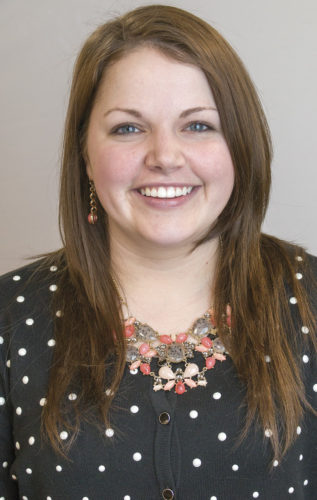The Dairy Calf & Heifer Association conference, to be held April 1-3 in Green Bay, Wisconsin, will provide information on the newest practices, technology and research in calf and heifer raising. Conference attendees will be able to visit four tour stops, with each stop offering expertise and perspectives from calf industry experts. Read on for details about Tours C and D.
(Click here for a previous article spotlighting Tours A and B.)
TOUR STOP C:
Emma Offenburger
Genetics and Marketing Support Specialist
Genex Cooperative, Inc.
Q. What do you think calf and heifer raisers will be most fascinated to learn about during the tour of Genex?
OFFENBERGER: The quality control measures that are used to increase semen fertility, the processing of the semen and that our distribution site can house 8 million units of dairy and beef semen, shipping to more than 60 foreign countries.
TOUR STOP D:
No one can appreciate the added performance and economics gained from early calf investments more than a dairy producer focused on optimizing lifetime production and genetic expression. At this tour stop, you’ll experience the complete spectrum – from a full potential feeding approach to high performance heifers entering the milking string.
Dan Schnell, speaking on putting together the right timeline: from colostruom to milk to grain to hay
Dairy Production Consultant
United Cooperative
Q. What three key elements will your presentation focus on?
SCHNELL: My presentation will focus on health, growth and rumen development.
Q. Why is it important for calf and heifer raisers to understand this topic?
SCHNELL: Early calf nutrition, health and growth the first four months have a big impact on calving age and first lactation production.
Q. What do you think will make this year's DCHA conference different than in years past?
SCHNELL: There are always new things to learn. Farm tours will show different successful ways of raising calves, and growers can always see a “new” take home idea when seeing another successful operation.
Dave Schroepfer, speaking on the value of inputs for results
Elite Account Manager
Alta Genetics
Q. What three key elements will your presentation focus on?
SCHROEPFER: The three most important parts of my presentation are: How to minimize days on feed after entering the A.I. pen; what drives pregnancy risk in heifers; and how do we accommodate different Voluntary Wait Periods (VWP) from our source farms?
Q. Why is important for calf and heifer raisers to understand this topic?
SCHROEPFER: They need to watch and monitor these things to positively affect their bottom lines.
To register for the conference, visit the Dairy Calf and Heifer Association website or call (855) 400-DCHA (3242). PD




